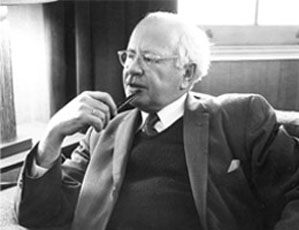A Quote by Tom Hoover
Zen takes the opposite tack; it holds that true reality is the fundamental unity of mind and matter, inner spirit and external world. When life is viewed in such terms, there can be no success or failure, happiness or unhappiness; life is a whole, and you are simply part of it. There are no dualities, hence there is nothing to worry about. The result is perfect tranquility.
Quote Topics
Related Quotes
As a man who has devoted his whole life to the most clear headed science, to the study of matter, I can tell you as a result of my research about atoms this much: There is no matter as such. All matter originates and exists only by virtue of a force which brings the particle of an atom to vibration and holds this most minute solar system of the atom together. We must assume behind this force the existence of a conscious and intelligent mind. This mind is the matrix of all matter.
There is, however, in art another kind of external similarity which is founded on a fundamental truth. When there is a similarity of inner tendency in the whole moral and spiritual atmosphere, a similarity of ideals, at first closely pursued but later lost to sight, a similarity in the inner feeling of any one period to that of another, the logical result will be a revival of the external forms which served to express those inner feelings in an earlier age.
I believe that a life of integrity I the most fundamental source of personal worth. I do not agree with the popular success literature that says that self-esteem is primarily a matter of mind set, of attitude-that you can psych yourself into peace of mind. Peace of mind comes when your life is in harmony with true principles and values and in no other way.
The basic idea of Zen is to come in touch with the inner workings of our being, and to do this in the most direct way possible, without resorting to anything external or superadded. Therefore, anything that has the semblance of an external authority is rejected by Zen. Absolute faith is placed in a man's own inner being. For whatever authority there is in Zen, all comes from within.
Until you have the inner discipline that brings calmness of mind, external facilities and conditions will never bring the joy and happiness you seek. On the other hand, if you possess this inner quality, calmness of mind, a degree of stability within, even if you lack the various external factors that you would normally require to be happy, it will still be possible to live a happy and joyful life.
I have found that the greatest degree of inner tranquility comes from the development of love and compassion. The more we care for the happiness of others, the greater is our own sense of well-being. Cultivating a close, warmhearted feeling for others automatically puts the mind at ease. It is the ultimate source of success in life.
So much of unhappiness, it seems to me, is due to nerves; and bad nerves are the result of having nothing to do, or doing a thing badly, unsuccessfully or incompetently. Of all the unhappy people in the world, the unhappiest are those who have not found something they want to do. True happiness comes to those who do their work well, followed by a refreshing period of rest. True happiness comes from the right amount of work for the day.
This is what meditation is all about, just becoming a watcher. Failure comes, success comes, you are praised, you are condemned, you are respected, you are insulted - all kinds of things come, they are all dualities. And you go on watching. Watching the duality, a third force arises in you; a third dimension arises in you. The duality means two dimensions: one dimension is happiness; another is unhappiness. Watching both, a depth arises in you: the third dimension, witnessing, sakshin.






























